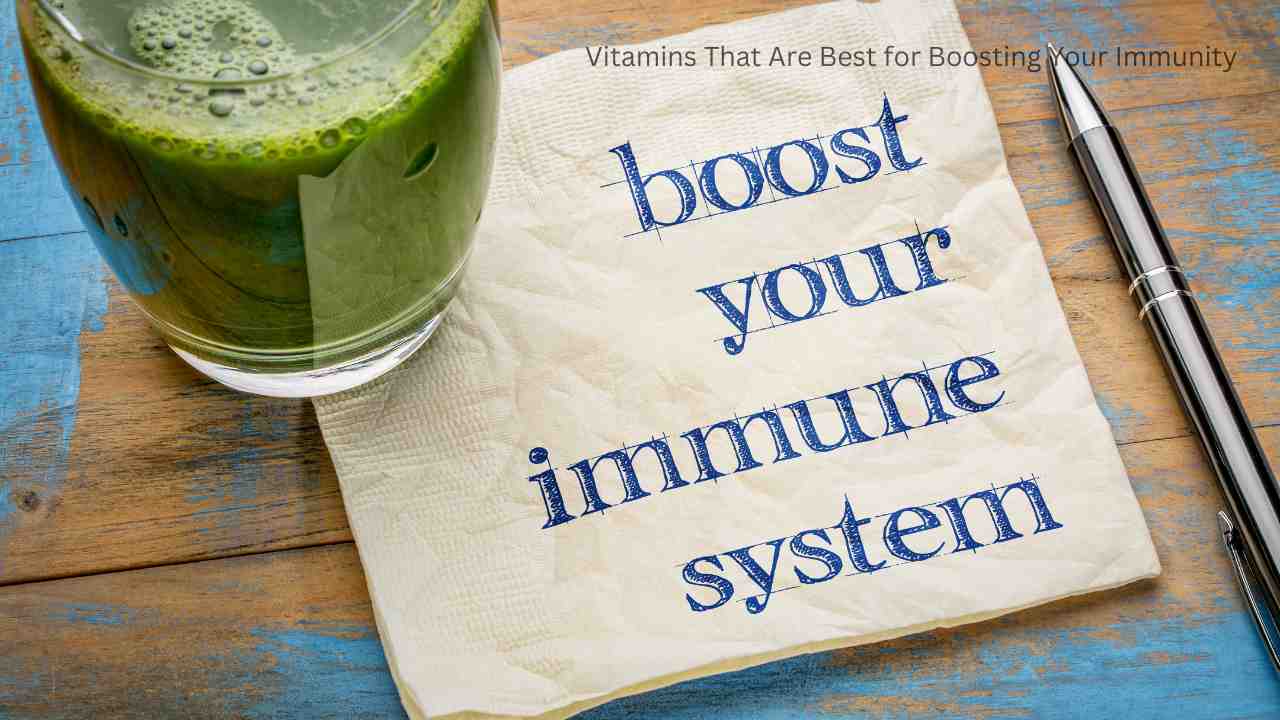It's difficult enough to remain motivated, active, and productive as it is—throw in being ill on top of that, and you're in serious trouble. Thankfully, you can adopt a variety of modest dietary modifications to strengthen your immune system and help your body fight off infections (which is especially important in the age of COVID-19). Nutrition is crucial for overall health, as well as immunological function. Eating a well-balanced diet, keeping hydrated, getting enough sleep, and avoiding stress in your life all contribute to a healthy immune system. Some nutrients are particularly beneficial to your immune system. Here are three essential nutrients for immunological health that you should include in your diet. Also, find out what foods to eat to obtain these vitamins and minerals into your diet.

1. Vitamin A
A reduced capacity to fight infections, particularly respiratory infections like COVID-19, is one of the first indicators of a modest vitamin A deficiency. Vision, reproduction, bone formation, and immunity are all supported and strengthened by vitamin A. By the way, vitamin A is an essential nutrient, meaning that our bodies cannot produce it on their own. As a result, it's critical to get enough of this immune-boosting mineral in your diet.
Vitamin A and Immunity: What the Science Says
Vitamin A supports the body's innate as well as adaptive immune systems. The skin, eyes, respiratory system, gastrointestinal tract, and reproductive organs are all protected by the innate immune response. Antibodies are produced by the adaptive immune system to fight foreign invaders (like the flu virus). Carotenoids (a kind of vitamin A found in plants) are also potent antioxidants that aid the body in its battle against inflammation. Vitamin A, like most other immune-boosting nutrients, is best obtained via diet rather than supplementation.
Supplementing with vitamin A is particularly prone to toxicity, and overdoing it may actually impair the immune system. What's the good news? Vitamin A may be found in food and is a safe and efficient way to achieve your daily requirements. They're also colorful and tasty!
2. Vitamin D
Did you realize that this "vitamin" isn't really a vitamin? Vitamin D, on the other hand, acts more like a hormone in your body.
Vitamin D is well recognized for its bone-building properties, but it also helps to enhance our innate and adaptive immune systems. The potent vitamin instructs the body to produce immune-boosting chemicals such as antimicrobial proteins that keep the body from becoming ill.
The nutrient has recently gotten a lot of attention because of its possible link to COVID-19 risk. More study is required before we can conclusively claim that low vitamin D levels increase the chance of COVID-19 infection (or worsen the symptoms if one is already infected). Nonetheless, recent research suggests that there is at least a link between vitamin D insufficiency and worse COVID-19 results (learn more about vitamin D and coronavirus).
What is the best way to acquire enough vitamin D?
When we are exposed to UV rays from the sun, our bodies produce vitamin D. Unfortunately, there are few dietary sources of vitamin D, and most individuals, particularly in the winter, do not obtain enough vitamin D from the sun to satisfy their requirements. Breastfed babies, elderly individuals, those with limited sun exposure, people with dark skin (melanin prevents vitamin D activation), people with fat malabsorption, and people with a BMI higher than 30 (classified as obese) or who have had gastric bypass surgery are all at risk for vitamin D insufficiency.
If you have frequent access to sunshine, it is recommended that you obtain 5 to 15 minutes of sun exposure three to four times each week. Early morning or late afternoon exposure gives a rich supply of vitamin D while also being less harmful to the skin.
If you fall into one of the groups at higher risk for vitamin D insufficiency, or if you've been diagnosed with one, you should consider taking a supplement. Vitamin D is one of the few nutrients we suggest supplementing with, mainly if you don't receive enough sun. Although some doctors prescribe more, most individuals need 15 mcg or 600 IUs each day.
The best food sources of vitamin D
Despite the fact that vitamin D is only found in a few foods, you may boost your vitamin D intake by including some of these items in your diet.
- Cod liver oil
- Salmon
- Mackerel
- Sardines
- Vitamin D-fortified milk, yogurt, and non-dairy milk
- Beef liver
- Egg yolks
- Mushrooms with UV fortification
3. Vitamin C
Vitamin C gets a lot of press when it comes to immunity, and for good reason. The vitamin may assist in the prevention of colds, increases antioxidant activity in the body, and helps in the absorption of other nutrients such as iron. Collagen production requires vitamin C as well.
Vitamin C and Immunity: What the Science Says
High vitamin C consumption has been linked to a lower risk of major chronic illnesses including cardiovascular disease, cancer, and some neurological problems, according to research. Vitamin C's immune-boosting qualities are most likely connected to its antioxidant capabilities when it comes to battling infections. That is, vitamin C (which is an antioxidant) aids in the regeneration of other antioxidants in the body, such as vitamin E, reducing the quantity of damaging free radicals that may exacerbate illnesses.
Vitamin C's Best Food Sources
- Citrus fruits
- Bell peppers
- Strawberries
- Cantaloupe
- Brussels sprouts
- Broccoli
- Tomatoes
Check out some of our other blog posts now!




